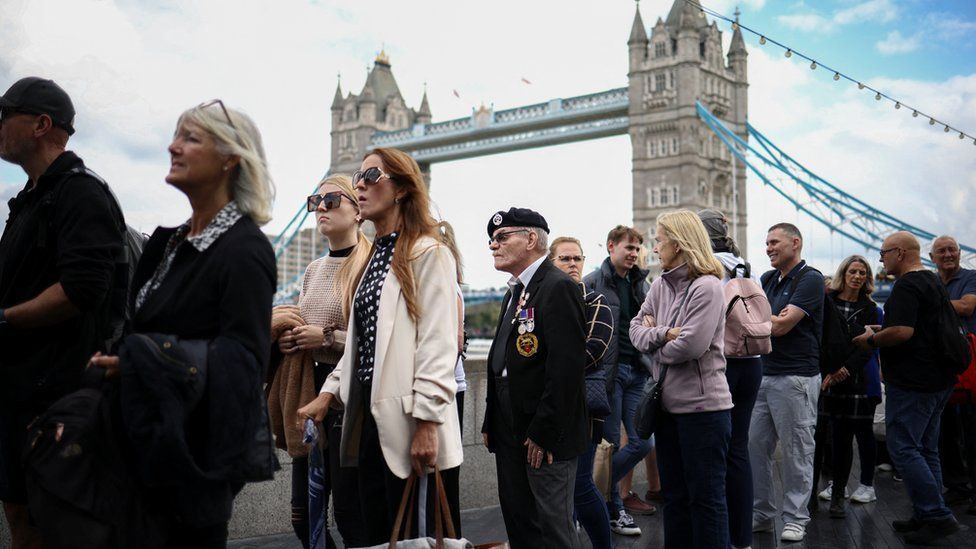ARTICLE AD BOX
By Becky Morton & Zoe Conway
BBC News
 Image source, Reuters
Image source, Reuters
A row has broken out over who is allowed to skip the queue to pay their respects to the late Queen.
MPs and members of the House of Lords do not have to queue and can take four guests each to the lying-in-state.
The majority of Parliamentary staff can also avoid the queues - but people working for MPs must stand in line.
Cleaners and security guards employed by contractors in Parliament must also queue - prompting claims they are being treated as "second class citizens".
There are hundreds of cleaners working across the Parliamentary estate. An estimated 160 of their jobs have been outsourced. Because they don't work directly for the parliamentary administration, they will not be entitled to gain access to the fast track queue.
The PCS trade union said it was "time for them to be treated as equals".
Shortly before 10:00 this morning, the government announced that the public queue was being paused for at least six hours after reaching capacity.
Mourners have been warned not to try to join the queue before 16:00 at the earliest.
The official estimate for queuing time has risen to at least 14 hours.
Former prime minister Theresa May, Defence Secretary Ben Wallace and deputy Labour leader Angela Rayner are among the MPs who have attended the lying-in-state at Westminster Hall.
Members of the public are able to attend 24-hours a day until 06:30 BST on Monday - the day of the Queen's funeral - but the queue will close before then to ensure as many people as possible can get in.
'Second-class citizens'
Many have waited more than eight hours for the opportunity to pay their respects.
Mark Serwotka, general secretary of the PCS union, which represents civil and public servants as well as private sector workers on government contracts, said: "It's symbolic that hard-working security guards, cleaners and catering staff in Parliament are treated as second-class citizens.
"As we usher in a new era, it's time for them to be treated as equals and at least given a pay rise to help them through the cost-of-living crisis and beyond."
Those who work for MPs or peers must also queue with the public to attend the lying-in-state.
One MP staff member said many were upset by this, adding: "We've seen in the parliamentary response to a succession of scandals involving the bullying and sexual harassment of MPs' staff that we are treated as an after-thought, and this is yet another example.''
According to an internal House of Commons memo, leaked to The Spectator, MPs' staff have been told that "it is not possible to open up access further without the risk of impacting access for queuing members of the public".
Some of the members of the public who had waited for several hours to pay their respects were infuriated by the fact MPs and peers were allowed to take four guests with them when they skipped the public queue.
"Personally, I think it's outrageous," said Christina from Balham in south London. ''I can understand that for security reasons MPs might not want to stand in the public queue but they shouldn't be able to take four guests in and neither should the peers."
Louise, from Keston in south-east London, also said she felt this was unfair, adding: "This day is supposed to be for the people."
But other people who had just emerged from Westminster Hall did not mind.
"I'm not bothered, it's one of the perks of their job,'' said Alan, from Kent. He and his wife Sue were pleased to have progressed along the queue in five hours.
Alan and Sally Prince from London also said they ''weren't fussed'', in part because they had really enjoyed being in the queue. "The atmosphere was fun. It felt like the nation was coming together," they said.
The queue for the Queen's lying-in-state was said to be nearly 5 miles long when it was paused.
The BBC is live streaming as people file past so that those unable to make it to London are able to pay their respects at home.

 2 years ago
33
2 years ago
33








 English (US)
English (US)